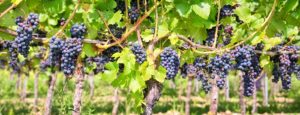
The Quality of Life
I have been pondering lately on the quality of life, not the quantity. The theme is common in many of my conversations. Perhaps it’s the season of life I am in, perhaps it’s the influence of my own legacy, perhaps it’s watching my children and grandchildren growing up.
We often define this as legacy, which is important. We think about legacy when we are sitting with our estate attorney, and we begin to think about assets and who owns them now and who should own them later. Sometimes we think about legacy in our charitable giving. We name things after ourselves that will outlive us (from buildings to bricks on a sidewalk). However, I think it’s much more about the now than the later because it usually centers around our relationships.
The movie “Get Low,” with Robert Duvall, tells a story of a man that plans his own funeral party. I won’t give away the plot, but I think we all secretly want to know what people are saying about us or would say about us when we are gone…wouldn’t we?
The Importance of Context
Grab your Bible; I want to call your attention to John 15:5, which is a very well-known piece of scripture. I am sure you have read it before, heard it preached on and perhaps have memorized it. I would like to spend a few minutes here.
Stuart Briscoe, a well-known teacher, pastor and author is famous for saying, “If you take the text out of the context, you have a con.” I, therefore, believe context is very important, so let’s begin by getting some context.
Jesus is speaking to his disciples (his interns) at the last supper. The disciples were usually Jesus’ primary audience. He is about to pass on a large responsibility to these followers. His legacy will rest on them. He begins by serving them and then sharing some truth about the future, which He is calling them to. The future promises them much to consider, including betrayal, suffering, confrontation and misunderstanding.
He then says to them, “I am the vine; you are the branches. Whoever abides in me and I in him, he it is that bears much fruit, for apart from me you can do nothing.”
This statement is packed tightly between some significant (verses 1 -11) commentary on the role and character of God and His relationship with us. I would suggest you take some time to deepen your understanding of this particular passage as well.
There are three buckets we find in John 15:5.
Abide
First, Jesus states His position. He is the vine. FULL STOP. He is the source. We are the branches. FULL STOP. We are dependent on the vine. I find this principal of dependence to be incredibly pregnant with meaning and frankly difficult to fully absorb. Independence is something we aim for our entire lives. We are rewarded for it, we preach it, we measure against it, we cherish it; however, God asks me to be fully dependent. This is not natural. It’s counterintuitive and requires significant humility, vulnerability and trust. I ask myself, I ask each of you – do I truly see Jesus as my vine or am I guilty of simply seeing Him as another branch. What is my vine?
Bear Fruit
 The second bucket is when Jesus proceeds to make a promise. The abiding aspect of the vine and branches bears much fruit. We understand that principle as we walk through a beautiful vineyard. Lisa and I were recently in Napa Valley and enjoyed the art and science of vineyards. Abiding in God has a little art and science too. Psalm 1 speaks of a tree planted by a river that bears much fruit. Galatians 5:22-26 speaks of the fruit of the Spirit (God’s character shining in us) and the horrific description of fruit that is born outside of the vine (spoiled and toxic). Philippians 4:7 speaks of how God guards our hearts (art) and minds (science) in Christ Jesus. What does it mean to abide (remain)?
The second bucket is when Jesus proceeds to make a promise. The abiding aspect of the vine and branches bears much fruit. We understand that principle as we walk through a beautiful vineyard. Lisa and I were recently in Napa Valley and enjoyed the art and science of vineyards. Abiding in God has a little art and science too. Psalm 1 speaks of a tree planted by a river that bears much fruit. Galatians 5:22-26 speaks of the fruit of the Spirit (God’s character shining in us) and the horrific description of fruit that is born outside of the vine (spoiled and toxic). Philippians 4:7 speaks of how God guards our hearts (art) and minds (science) in Christ Jesus. What does it mean to abide (remain)?
I have found the following to be helpful. Daily communion with God in His word, in worship and in prayer. I have found that proximity and time are my friends, and I can’t abide unless I stay close to Jesus and take the time to be with Him. I have found that disconnecting anything in my life that disrupts the abiding is necessary, and the quicker I do this the greater my experience is. What does your abide look like? How can it improve? What can you share that would model for another on how you abide?
Do Nothing
Lastly, Jesus makes another bold comment, “apart from me you can do nothing.” He is saying this knowing Judas has just departed and is plotting behind His back. Jesus is not suggesting anything. He simply is saying that apart from Him we are incapable of living a life of legacy. Please, don’t misunderstand what I am saying. We can leave all kinds of legacies that are impressive to our communities and to our world, however, in God’s economy not so much. How do I measure my accomplishments? Do I run the risk of believing that I am doing something of lasting importance, leaving a legacy, when God simply thinks differently? How does God define nothing?
Therefore, as we contemplate our next move, our next decision, our next adventure, our next… let me revisit my understanding of the Vine and its relationship to me. Do I believe that the Vine is truly my source? How am I abiding with intentionality? What is it that I am doing in my life that has eternal significance?
My legacy is, in fact, defined by my abiding in Jesus, truly seeing Him as my vine and recognizing that He alone measures the value of the fruit of my life, and that He alone deems the value of everything. God, who created all and deemed it good is also the same God that will one day see me and say, “Well done my good and faithful servant” (Matthew 25:21).
Stephan N. Tchividjian is the president and founder of the National Christian Foundation South Florida. Visit southflorida.ncfgiving.com to learn more.

Read more articles by Stephan Tchividjian at: goodnewsfl.org/author/stephan-tchividjian/

Comments